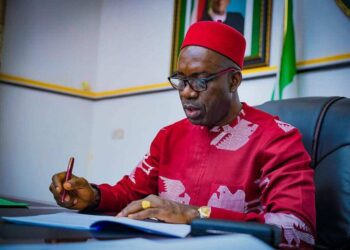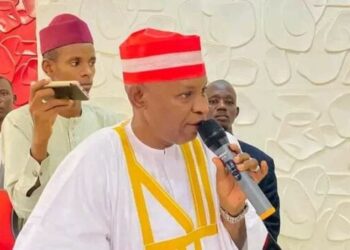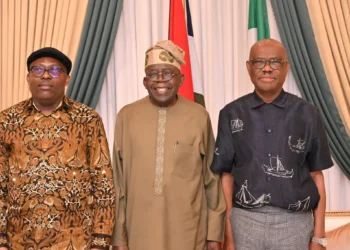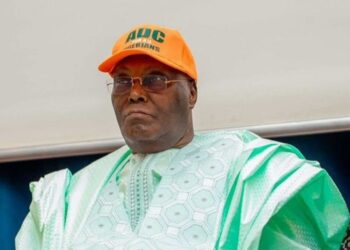The Peoples Democratic Party has clarified that its internal zoning arrangements will not prevent aspirants from any region of the country from contesting for the party’s presidential ticket in the 2027 elections, despite any geographical preferences the party might establish.
Speaking during an interview on Arise Television’s Morning Show, PDP’s National Legal Adviser, Kamaldeen Ajibade, explained that while zoning remains an important tool for promoting equity and inclusivity within the party, such arrangements cannot override the fundamental provisions of the Nigerian Constitution.
Ajibade emphasized that the party’s commitment to constitutional principles means that even if the PDP decides to zone its presidential candidacy to a particular region, this decision cannot legally bar qualified individuals from other parts of the country from expressing interest and participating in the selection process. He stressed that the party cannot implement policies that would contradict Nigeria’s supreme law, which guarantees equal political participation rights to all citizens.
The PDP official’s statement represents a significant clarification of the party’s approach to candidate selection, particularly given ongoing debates about regional rotation of political power in Nigeria. His remarks suggest that the party is seeking to balance its internal equity mechanisms with constitutional requirements for inclusive democratic participation.
This position aligns with arguments that have been consistently advanced by technocrat and politician Gbenga Olawepo-Hashim, whose political movement has long advocated against using zoning arrangements to exclude competent leaders from presidential contests. Olawepo-Hashim’s supporters have argued that merit and capability should take precedence over geographical considerations in candidate selection.
Reacting to the PDP’s clarified position, Abass Olaniyi, who serves as South West Coordinator of the Gbenga Hashim Solidarity Movement, welcomed the party’s stance as a significant advancement for democratic principles. Olaniyi described the PDP’s approach as a major victory for democracy and characterized it as vindication of what he called Dr. Hashim’s ideological politics.
Olaniyi praised the PDP for choosing what he termed fairness and inclusivity in structuring its approach to the 2027 electoral contest. He suggested that this position demonstrates the party’s commitment to democratic values and constitutional governance over narrow regional considerations.
Olawepo-Hashim, a businessman who transitioned into politics, has gained recognition for his focus on issue-based political discourse and his efforts to bridge Nigeria’s persistent North-South political divide. His political approach has emphasized national unity and competence-based leadership selection rather than regional calculations.
The growing influence of Olawepo-Hashim’s political movement, particularly in Osun State, has fueled increasing speculation about his potential presidential ambitions for the 2027 election cycle. Political observers have noted his expanding support base and his consistent advocacy for inclusive political participation across regional boundaries.
The PDP’s clarification comes at a time when Nigerian political parties are beginning to position themselves for the 2027 elections, with discussions about zoning arrangements and regional representation becoming increasingly prominent in political discourse. The party’s emphasis on constitutional compliance while maintaining zoning as an equity tool reflects the complex balance between democratic principles and Nigeria’s diverse regional interests.
This development may influence how other political parties approach their own candidate selection processes, particularly regarding the relationship between internal zoning arrangements and constitutional requirements for equal political participation.


















